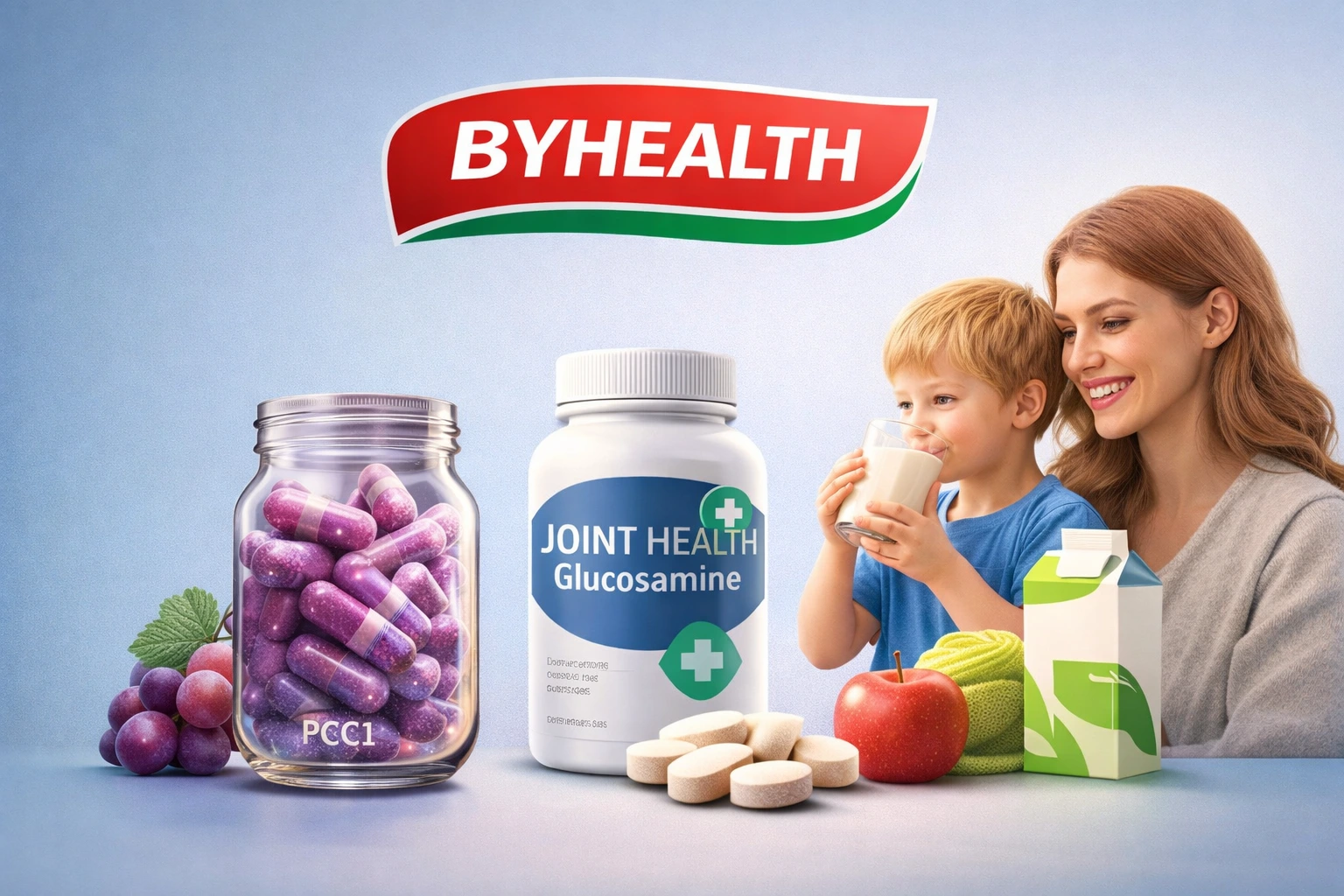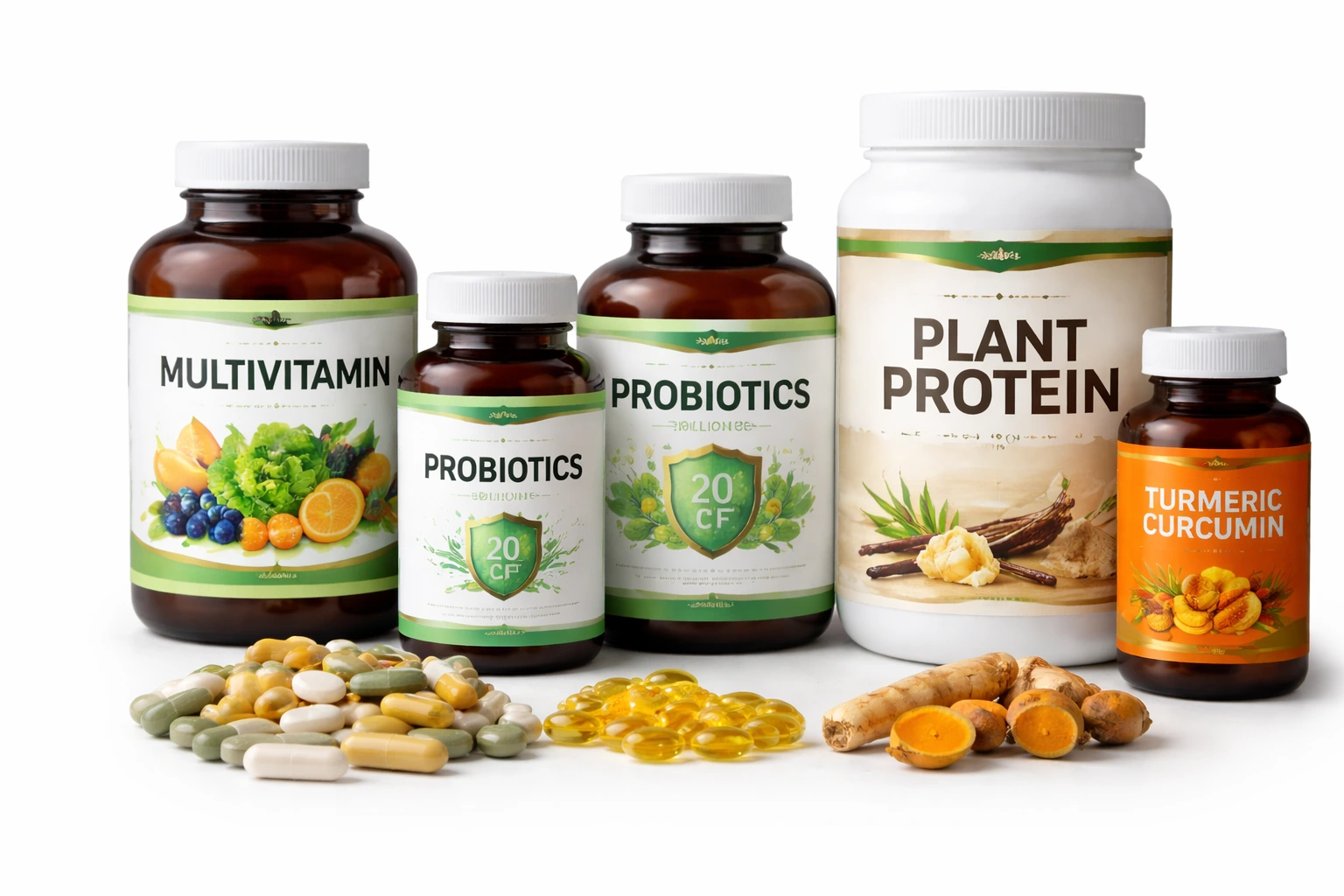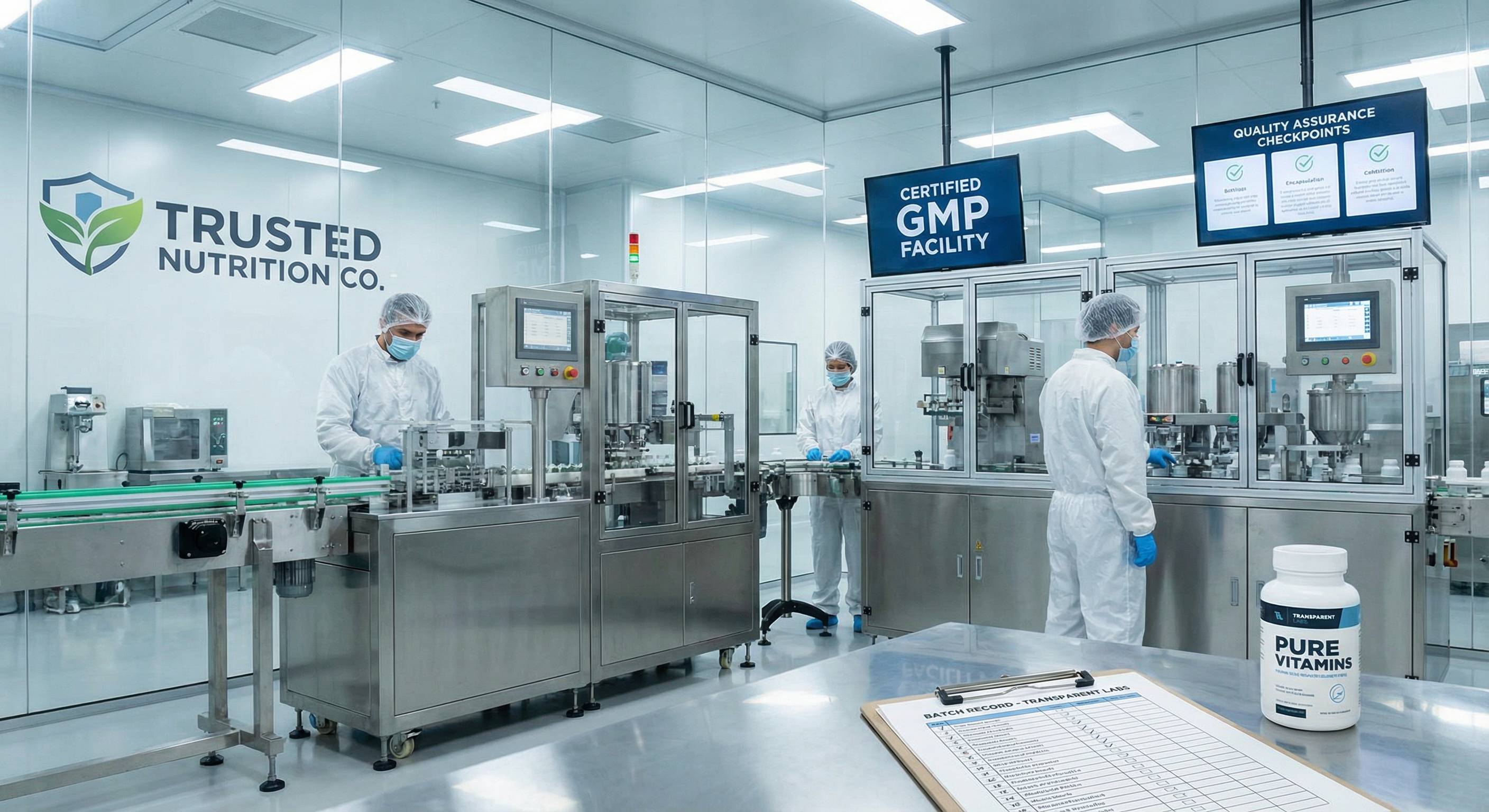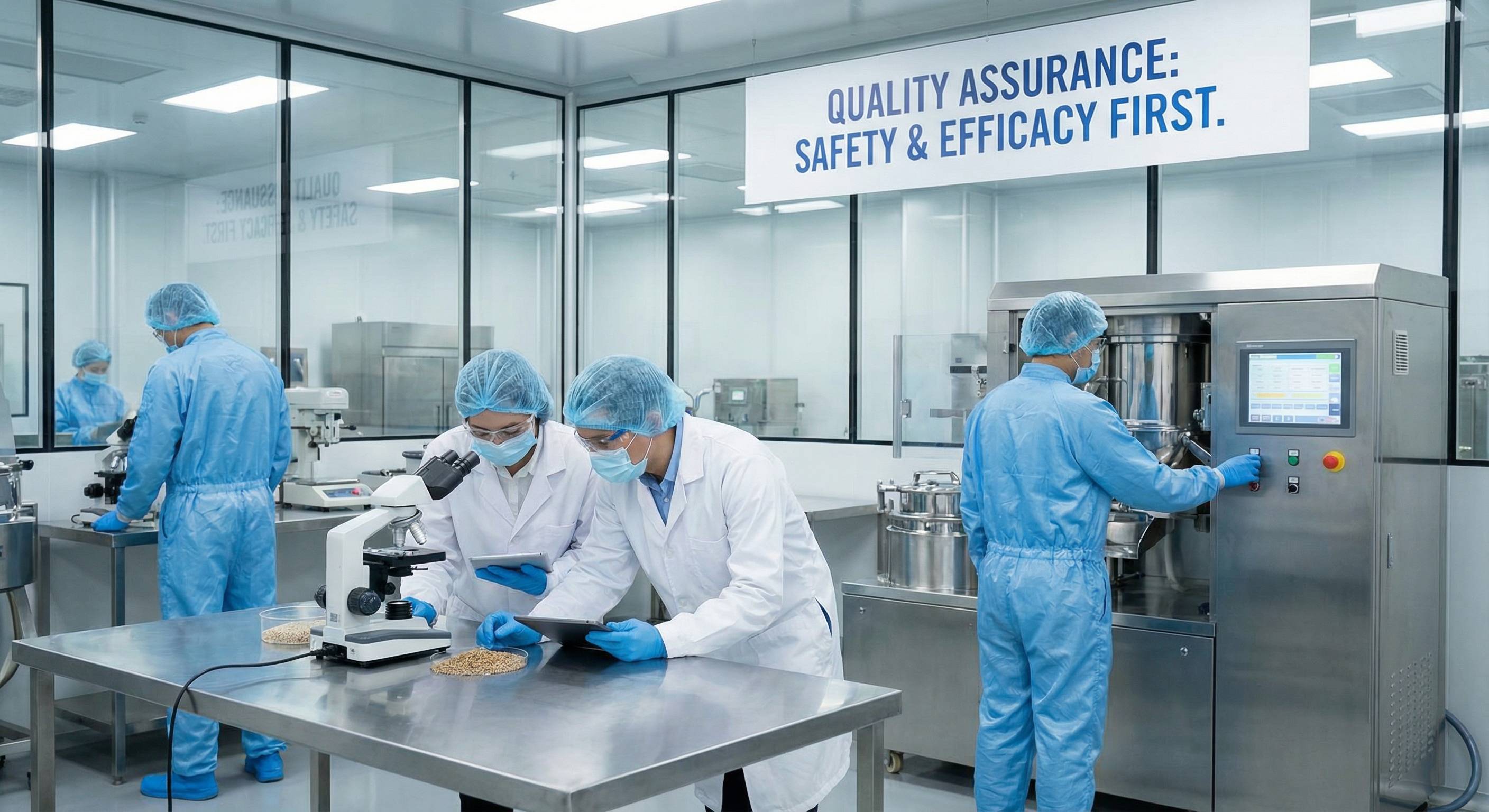In the thriving dietary supplement industry, bringing a product from concept to market requires a highly specialized partner: the dietary supplement manufacturer. For brands, understanding the intricate role of these manufacturers is paramount to developing high-quality, compliant, and successful products. A supplement manufacturer is far more than just a production line; they are a strategic partner responsible for transforming raw ingredients into finished, shelf-ready supplements while adhering to stringent regulatory standards and ensuring consumer safety. Their expertise bridges the gap between scientific formulation and commercial viability.
The Core Role of a Dietary Supplement Manufacturer
At its heart, a dietary supplement manufacturer is a company that specializes in producing dietary supplements on behalf of other brands (often referred to as contract manufacturing or private labeling) or for their own distribution. This process is complex, involving everything from the initial sourcing of raw materials to the final packaging and rigorous quality control. Their specialized knowledge and infrastructure are indispensable because manufacturing supplements is a highly regulated and technically demanding process that requires scientific precision, state-of-the-art equipment, and unwavering adherence to strict safety and quality protocols. They act as the operational backbone for supplement brands, allowing brands to focus on marketing, sales, and brand development.
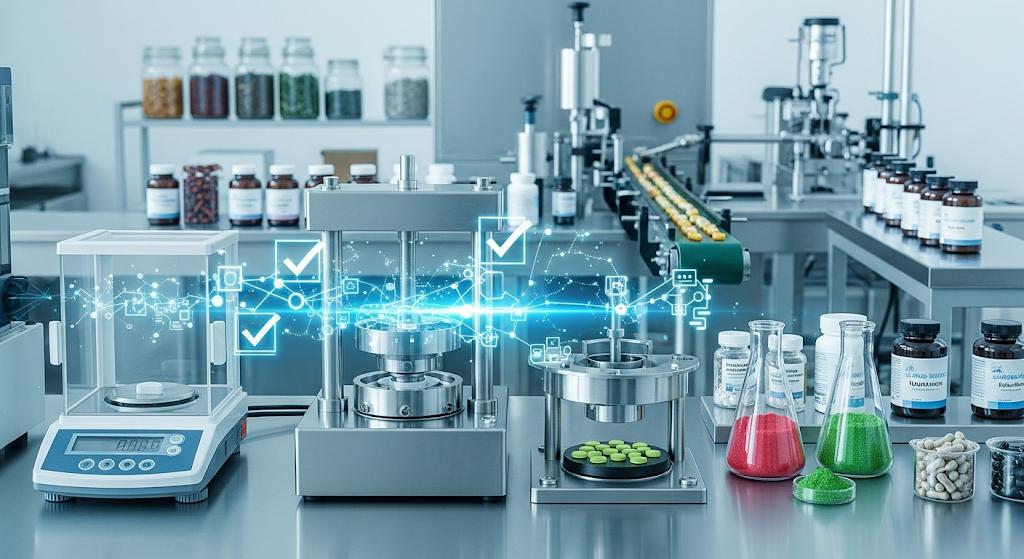
Key Responsibilities and Comprehensive Services
A reputable dietary supplement manufacturer offers a wide range of services, acting as an end-to-end solution provider. These responsibilities typically extend across the entire product lifecycle:
1. Research & Development (R&D) and Formulation Expertise
This is often where a new supplement line truly begins. A strong manufacturer provides invaluable R&D capabilities:
-
Concept Refinement and Market Analysis: Collaborating closely with brands to refine product ideas, identify specific target consumer needs, and define desired health benefits. This might include market research on trending ingredients or novel delivery forms.
-
Ingredient Sourcing & Vetting: Sourcing high-quality, authentic, and effective raw materials from a global network of approved suppliers. This process is meticulous, involving due diligence to verify the identity, purity, potency, and safety of every incoming ingredient, from vitamins, minerals, and amino acids to complex herbal extracts, probiotics, and specialty compounds. Manufacturers often maintain long-standing relationships with ethical suppliers to ensure a consistent and reliable supply chain.
-
Formula Optimization and Synergy: Developing stable, effective, and safe formulations. This includes determining optimal ingredient dosages (often based on scientific literature and regulatory guidelines), ensuring compatibility and synergy between different ingredients to maximize efficacy and prevent degradation, and considering bioavailability for optimal absorption in the human body. They can advise on the best forms of ingredients (e.g., magnesium citrate vs. magnesium oxide for absorption).
-
Sensory Profile Development: For powders, gummies, and liquid supplements, R&D includes creating palatable flavors, selecting appropriate natural or artificial sweeteners, and ensuring desirable textures. This is critical for consumer compliance and repeat purchases.
-
Stability Testing for Formulation: Early-stage stability tests are conducted on new formulations to predict shelf-life and ensure product integrity over time under various environmental conditions.
2. Regulatory Compliance & Uncompromising Quality Assurance (QA)
This is the most critical and non-negotiable aspect of a reputable manufacturer's role, directly impacting consumer safety and a brand's legal standing.
-
Current Good Manufacturing Practices (cGMP) Adherence: Manufacturers must rigorously adhere to cGMP regulations (e.g., 21 CFR Part 111 in the U.S.) enforced by regulatory bodies like the FDA. This comprehensive framework ensures that products are consistently produced and controlled according to strict quality standards throughout every stage of the manufacturing process. It covers everything from the design and maintenance of the facility, calibration of equipment, raw material handling, and finished product storage, to detailed documentation and extensive personnel training.
-
Robust Quality Control (QC) Testing: Implementing a multi-stage, rigorous testing protocol is fundamental:
-
Raw Material Identity Testing: Verifying that incoming ingredients are precisely what they claim to be.
-
Purity Testing: Screening for contaminants such as heavy metals (lead, mercury, arsenic, cadmium), pesticides, herbicides, solvents, and microbial impurities (bacteria, yeast, mold).
-
Potency/Strength Testing: Confirming that each ingredient is present at the declared dosage and active compounds meet specifications.
-
In-Process Testing: Continuous monitoring during production (e.g., blend uniformity, tablet hardness, capsule fill weight) to ensure consistency and prevent deviations.
-
Finished Product Release Testing: Comprehensive final verification of the product's identity, purity, strength, composition, and often disintegration or dissolution, ensuring the final batch meets all specifications and is safe for release.
-
-
Stability Program and Shelf-Life Determination: Conducting comprehensive stability studies using real-time or accelerated aging conditions to determine and validate the product's shelf life and recommended storage conditions. This ensures the product remains potent and safe throughout its declared lifespan.
-
Comprehensive Documentation & Meticulous Record Keeping: Maintaining exhaustive records for every single batch produced, covering every aspect from raw material receiving and quarantine to detailed manufacturing steps, QC results, packaging details, and final distribution records. This rigorous documentation is critical for traceability, demonstrating compliance during regulatory audits, and enabling efficient recall procedures if necessary.
-
Environmental Monitoring: Regular testing of the manufacturing environment (air, surfaces, water) to prevent contamination.
-
Corrective and Preventive Actions (CAPA): Implementing systems to investigate deviations or consumer complaints and put in place measures to prevent recurrence.
-
Industry and Regulatory Certifications: Obtaining and meticulously maintaining various certifications that are vital for market access, consumer trust, and meeting specific brand or dietary requirements. These can include:
-
NSF International / USP (U.S. Pharmacopeia): Voluntary third-party certifications for quality, purity, and content verification.
-
Certified Organic: For products meeting USDA organic standards.
-
Non-GMO Project Verified: For products free from genetically modified organisms.
-
Kosher / Halal: Religious certifications critical for specific demographic markets.
-
Informed-Sport / NSF Certified for Sport: For athletic supplements, ensuring freedom from banned substances.
-
Vegan / Vegetarian Certifications: For plant-based products.
-
3. Manufacturing & Production Excellence
This is where the R&D-approved formula is brought to life, requiring specialized equipment and skilled operators for various dosage forms:
-
Ingredient Weighing and Blending: Precise measurement and thorough blending of raw materials in controlled environments to ensure homogeneity and accurate dosage in every serving.
-
Diverse Formulation Capabilities: Advanced machinery and processes are used for different product forms:
-
Capsules: Utilizing high-speed encapsulation machines for both hard-shell capsules (gelatin or vegetable-based) and softgels (liquid or oil-based fill).
-
Tablets: Employing advanced tablet compression machines to create various shapes, sizes, and coatings (e.g., film-coated, enteric-coated, chewable).
-
Powders: Specialized blending and filling lines for precise dosing into tubs, sachets, or stick packs. Often includes granulation for improved flowability.
-
Liquids: Precise mixing, homogenization, and bottling lines for oral liquids, drops, or sprays.
-
Gummies: Sophisticated cooking, molding, drying, and coating equipment to produce appealing and stable gummy supplements.
-
Other Forms: Some manufacturers specialize in unique delivery systems like effervescent tablets, chewables, or dissolvable strips.
-
-
Packaging: Implementing automated or semi-automated packaging lines for various containers (bottles, jars, pouches, boxes, blister packs). This includes accurate labeling, induction sealing for tamper-evidence, date coding, and lot number printing for traceability.
4. Packaging & Labeling Compliance
Beyond simply putting products into containers, this phase involves critical regulatory and aesthetic elements:
-
Label Design and Regulatory Review: Ensuring all product labels meet comprehensive regulatory requirements of target markets (e.g., FDA labeling guidelines, EU regulations). This includes mandatory elements like the Supplement Facts panel, ingredient lists, allergen declarations, proper claim substantiation (e.g., structure/function claims), net contents, manufacturer information, and warnings. Many manufacturers provide in-house regulatory review teams to prevent costly compliance issues.
-
Material Sourcing: Sourcing appropriate, high-quality packaging materials that protect product integrity (e.g., amber glass for light-sensitive ingredients, child-resistant caps) and align with the brand's aesthetic and sustainability goals.
5. Warehousing, Logistics & Distribution Support (Optional but Common)
Many full-service manufacturers offer services beyond the production line, streamlining the supply chain for brands:
-
Secure & Climate-Controlled Storage: Providing appropriate warehousing for both raw materials (often requiring specific temperature or humidity conditions) and finished goods.
-
Inventory Management: Efficiently managing inventory levels to ensure timely order fulfillment.
-
Order Fulfillment: Shipping products directly to retailers, distributors, e-commerce fulfillment centers, or even directly to consumers (drop-shipping) on behalf of the brand, optimizing logistics and reducing lead times.
-
Global Shipping Expertise: Navigating international shipping regulations and customs for brands looking to expand overseas.
Types of Dietary Supplement Manufacturers
Manufacturers can vary significantly in their specialization, scale, and scope of services:
-
Contract Manufacturers (CMOs/CDMOs - Contract Development and Manufacturing Organizations): These are the most prevalent. They produce supplements for other brands based on specific contractual agreements. They can offer:
-
Private Label Manufacturing: Producing generic, ready-to-use formulas that the brand can simply label with their own branding. Ideal for rapid market entry or smaller brands.
-
Custom Formulation Manufacturing: Developing and producing unique, proprietary formulas exclusively for a specific brand. This allows for greater product differentiation.
-
-
White Label Manufacturers: A specific subset of contract manufacturing, where a manufacturer maintains a catalog of pre-existing, fully developed formulas that brands can choose from, applying only their own branding and packaging. This is often the fastest and most cost-effective entry point for new brands.
-
Full-Service Manufacturers: Offer comprehensive services spanning the entire product lifecycle, from initial R&D and raw material sourcing to manufacturing, packaging, regulatory submission assistance, and sometimes even distribution. They act as a true strategic partner.
-
Specialty Manufacturers: Focus on specific product types (e.g., only complex probiotic blends, only effervescent tablets, only sterile liquid injectables) or specific certifications (e.g., only certified organic products, only allergen-free facilities).
-
In-House Manufacturers: Larger brands with significant resources may have their own manufacturing facilities, controlling the entire process internally. However, this is capital-intensive and less common for emerging brands.
Why Partner with a Dietary Supplement Manufacturer? Strategic Advantages for Brands
For supplement brands, partnering with a specialized manufacturer offers compelling strategic advantages that are difficult to replicate independently:
-
Regulatory Expertise & Assured Compliance: The dietary supplement industry is heavily regulated. Navigating complex and ever-evolving cGMP standards, FDA guidelines, and international regulations requires deep, specialized knowledge and continuous vigilance. Reputable manufacturers possess this expertise, ensuring products are consistently safe, effective, and legally compliant, thereby protecting the brand's reputation and avoiding costly penalties.
-
Significant Cost Efficiency & Reduced Capital Investment: Establishing and maintaining a compliant manufacturing facility, investing in specialized machinery, and hiring a skilled workforce is incredibly capital-intensive. Outsourcing production to a manufacturer eliminates this massive upfront investment, freeing up a brand's capital for R&D, marketing, and distribution.
-
Scalability & Flexibility: As market demand fluctuates, manufacturers can scale production up or down efficiently, allowing brands to grow organically without the burden of excess capacity or the inability to meet sudden surges in demand. This flexibility is crucial for managing inventory and cash flow.
-
Uncompromising Quality Assurance & Testing: Reputable manufacturers maintain sophisticated in-house analytical laboratories and robust quality control systems. They conduct extensive testing for identity, purity, potency, and contaminants that would be cost-prohibitive for most individual brands to replicate. Many also utilize independent third-party labs for unbiased verification, providing an extra layer of assurance.
-
Focus on Core Competencies: By delegating the complexities of manufacturing, quality control, and regulatory adherence, brands can sharpen their focus on their core competencies: product innovation, strategic marketing, sales, brand building, and customer relationships. This specialization drives efficiency and competitive advantage.
-
Access to Innovation & R&D: Leading manufacturers often have dedicated R&D teams, access to novel ingredients, and expertise in developing cutting-edge formulations and innovative delivery systems. They can offer insights into market trends and new technologies, helping brands stay ahead of the curve.
-
Supply Chain Management: Manufacturers manage the intricate global supply chain for raw materials, ensuring consistent quality and availability, and mitigating risks associated with ingredient shortages or quality issues.
-
Speed to Market: Leveraging an established manufacturer's infrastructure and experience can significantly reduce the time it takes to bring a new product from concept to commercial launch, a critical factor in a fast-paced market.
Choosing the Right Manufacturer for Your Brand: A Critical Decision
Selecting the ideal dietary supplement manufacturer is one of the most critical business decisions a brand will make. This partnership can make or break a product line's success. Brands should meticulously evaluate potential partners based on:
-
cGMP Compliance & Regulatory Track Record: Always verify their current cGMP status. Request recent audit reports and review their history with regulatory bodies. This is non-negotiable.
-
Experience & Specialization: Do they have a proven track record with your specific product type (e.g., probiotics, sports nutrition, multi-vitamins) or the ingredients you plan to use? Do they understand the nuances of your target market's regulations?
-
Quality Control & Testing Capabilities: Inquire in detail about their in-house laboratory capabilities, testing protocols (raw material, in-process, finished product), and their reliance on third-party verification.
-
Transparency & Communication: Seek a partner who is transparent about their processes, proactive in communication, and responsive to inquiries. A clear line of communication is vital for problem-solving and timely project completion.
-
Minimum Order Quantities (MOQs): Ensure their MOQs align with your current business scale and projected growth. Some manufacturers cater to startups, others to established large-volume brands.
-
Cost vs. Value: While pricing is important, balance competitive quotes with the overall value provided, including quality assurance, regulatory support, and R&D capabilities. The lowest price isn't always the best value.
-
Certifications: Confirm they hold all necessary certifications for your target market and any specific claims you intend to make (e.g., Organic, Halal, Kosher, NSF Certified for Sport).
-
Customer References & Reputation: Ask for references from current or past clients and research their industry reputation.
-
Capacity & Lead Times: Understand their current production capacity and typical lead times to ensure they can meet your volume and launch schedules.
A dietary supplement manufacturer is an indispensable strategic partner in the dynamic and highly competitive supplement industry. They are the essential link between scientific innovation and consumer access, providing the expertise, infrastructure, and stringent quality control necessary to produce safe, effective, and compliant products. By carefully selecting and collaborating with a reputable manufacturer, brands can confidently bring their vision to life, navigate complex regulatory landscapes, and ultimately build a successful and trusted presence in the global health and wellness market.

